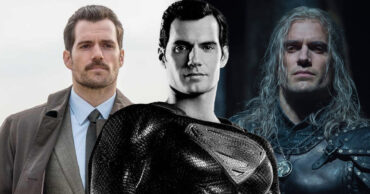
The ease with which The Grinder has found itself in the space of two episodes is impressive. There’s a natural rhythm to every conversation and scene, using dialogue for humor, rather than long-winded, barely disguised expository devices setting up the premise of the show. The idea is simple: TV lawyer tries to become real lawyer in his lawyer family, and The Grinder recognizes how simple this is, which makes it very easy for “A Hero Has Fallen” to look past its premise, and begin to really tell its story.
The Grinder is a show with confidence, apparent in the opening moments of “A Hero Has Fallen,” which turns the cold open into the show’s first meta moment, reflecting on the nature of the fake The Grinder pilot Dean and company are watching on television, and how important it is to maintain the tenants of a pilot in the show’s second episode, lest they immediately alienate their audience and send them flying away in drones. On paper, this may sound like a desperate ploy to keep audiences engaged, but in the context of the show itself, it becomes a wonderful little moment exploring the mentality of television production and the feelings of futility a writer can feel after spending months on a pilot script, then given a few weeks to produce multiple new scripts that maintain the same appeal – and hopefully, expand on it.
“A Hero Has Fallen” doesn’t necessarily offer any expansion on the show’s premise, but it’s still a wildly entertaining episode that takes advantage of the rapport developing between Rob Lowe and Fred Savage, the two brothers Sanderson trying to find a common ground to work from beyond their relations and supposed “similar” experience as lawyers. The case of the week features two employees fired for dating, and it couldn’t be any more weightless a case. It mostly exists to throw Dean his first professional challenge as a ‘lawyer,’ which throws him into a deep depression, crying at the batting cages and looking wistfully at the night sky as he contemplates facing his first legal ‘loss.’
There isn’t a strong play here for poignant character exploration, just a simple bruising of a man’s ego, which Lowe plays fantastically. Where it finds its meaning, however, is Dean realizing he’s not alone in trying to solve the case, and that unlike his television show, he’s going to need some help from his family if he’s going to ‘win’ this case, or find a way to move his own life forward. Dean can live vicariously through Stewart for awhile, but that is only a satisfying thing in the successful, bright moments. Dean’s instant depression indicates real, raw feelings boiling underneath his tanned, chiseled surface: this is a man who returned home to find meaning in his life, and facing immediate failure on the first step of that journey can be a very debilitating experience.
The Grinder isn’t trying to be a depressing episode of television, of course. Most of this dark material is played for laughs, a thin veneer of humor shoved between Stewart’s scenes, where the straight man contemplates his status as the straight man, another meta story that shows a bit of ambition on the part of The Grinder‘s writers, and how they use the show-within-a-show context to explore a very specific character archetype. Instead of disproving it as a fictitious creation, the show turns Stewart into the actual ‘hero’ of the episode, a man who sticks to the books, and proves to be a working man-inspiration for Dean to go to amazing things – or in the case, get the defendant to rehire the couple, without really using any legal knowledge to do so.
There’s a strong core forming on The Grinder between generations of Sanderson men. While the show still has some work to do integrating Debbie, Liz, Ethan, and now Claire (hey, Natalie Morales!) into stories, there’s an effortless charm bubbling to the surface in “A Hero Has Fallen” I really enjoy. Hopefully, the next few episodes will continue to expand on this (and hopefully, the racial balance of its cast – I can’t help noticing how lily white every single scene is), and if they do, The Grinder could be the fall’s standout new comedy, a blend of family stories, meta humor, and mid-life crisis jokes that could really stand out as something different among the milquetoast collection of family comedies on network television today.
[Photo credit: Ray Mickshaw/FOX]
 Follow Us
Follow Us





